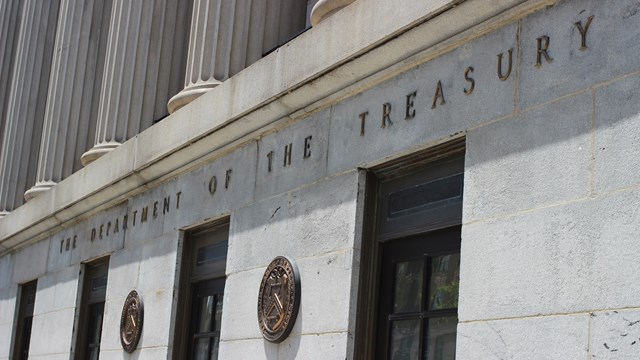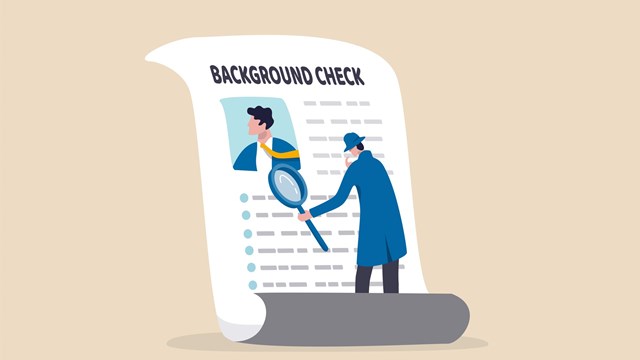Since the attacks and subsequent collapse of the World Trade Centers in Lower Manhattan last fall, area residents, business owners, real estate professionals, developers, and concerned citizens' groups have been doing their best to navigate the welter of legal, social, and civil issues brought up in the tragedy's wake. Even before the full extent of the damage done on September 11th was known, downtown residents feared for their lives, their health, the safety of their children, and the fate of their homes. Business owners and those who worked in Lower Manhattan wondered if they'd be shut down, either by new attacks, government orders, or sheer lack of business.
Even now, months later, the questions are still like onions; peel away one layer, and dozens more present themselves in an ever-tightening, ever-narrowing succession of issues until one can barely recall the original question. Problems to solve range from revitalizing the entire economic and cultural fabric of the lower quarter of Manhattan to the seemingly mundane question of whether prospective co-op and condo buyers are still bound to the contracts they signed before the towers fell and everything changed, or how displaced downtown residents should go about dusting their apartments. All the questions raised since September 11th are valid and of great importance to those asking them: at this point, it's really a matter of scale.
As the last of the debris is cleared from Ground Zero and most residents of Lower Manhattan returned to their homes, city, state, and federal governments - as well as citizen-led activist groups - are turning their attention to the question of, "What Next?" What will be done with the 16 acres of battered land that used to host the icons of free trade and American commerce?
Obviously, whatever re-development plans are finally adopted, a memorial to those who lost their lives on September 11th will be the cornerstone upon which the new Lower Manhattan rests. But how to honor the victims and their families, while still allowing for the economic development so crucial to New York City's re-emergence as the financial and cultural Capital of the World?
On May 23rd, the Lower Manhattan Development Corporation (LMDC), in cooperation with the Port Authority, the Mayor's office, and Pace University hosted a public hearing to discuss the memorial-vs.-commerce issue, as well as a host of other concerns. The idea behind the hearing - the first of five such events planned in the next few months - was to provide the general public with a forum in which to express their views, opinions, thoughts, and criticisms of how the various government agencies involved in resuscitating downtown Manhattan have handled the job.
A standing-room-only crowd showed up at Pace University's Schimmel Center for the Arts in Lower Manhattan, many of the attendees carrying hand-lettered placards expressing their displeasure with the LMDC, Governor George Pataki, Mayor Michael Bloomberg, and various city agencies that protesters feel are not doing enough to assist those hit hardest by the economic impacts of the attacks: middle- and low-income downtown residents, small business owners, immigrants, and the uninsured, who claim that air pollution immediately after the attacks has left them - and their children - with a host of respiratory and immune-system ailments they can't pay to have treated.
After a brief introduction of the LMDC panel, which included architects, attorneys, New York City Deputy Mayor Daniel L. Doctoroff, Port Authority Chairman Jack G. Sinagra, and other government and civil luminaries, LMDC chairman John C. Whitehead introduced the group's "Principles and Preliminary Blueprint for the Future of Lower Manhattan" - which reads like a cumulative wish-list of the last 30 years for Lower Manhattan: new subway lines, improved traffic flow in the Financial District, more green spaces, expanded residential space, more low- and middle-income housing, improved street grids and pedestrian routes to "create a stronger sense of community," and promotion of "retail and commercial opportunities that support Lower Manhattan as a vibrant place with daytime and nighttime activities." Other goals include "[tying] together existing public spaces on the waterfront into a continuous park," and "[encouraging] preservation of outstanding historic structures and the cultural value of the cityscape."
Several panelists worked in concert to present the LMDC's initial blueprint before the floor was opened to the public. According to Deputy Mayor Doctoroff, the purpose of the forum was to "embark on a remarkable journey together," to eventually adopt "a plan that will hopefully do great honor to the people who lost their lives, and will also rebuild a stronger New York." Deputy Mayor Doctoroff praised the people of New York City's "extraordinary spirit, and extraordinary cooperation" during the crisis last September and since then, remarking that, "the challenges are daunting, and there are many competing intentions," but that overall, the fact that the cleanup efforts have concluded "months ahead of schedule and hundreds of millions of dollars below [budget]" is a testament to what makes New York the great city it is.
Louis Tomson, president of LMDC, spoke of the importance of a fitting memorial to the victims of September 11th and made it clear in his brief presentation what his organization's blueprint is not: "[The blueprint] is not a detailed architectural and engineering plan. It is a framework, or a road map "¦ that will enable us to think about plans for the site. It's not all-inclusive, and it's not exhaustive," said Tomson. "These are ideas illustrating the types of choices to be made." Tomson invited the audience to visit the LMDC Web site (www.renewnyc.com) and encouraged both the public and the assembled professionals to approve and build "the most moving and appropriate memorial possible" at the WTC site.
The crowded auditorium occasionally erupted into spontaneous applause (and some heckling) during the initial introductions and presentation of the LMDC's blueprint, and by the time the group's moderator outlined the ground rules for the participatory segment of the evening (three-minute time limits, speak up, and no interruptions from the crowd), many of those in attendance were more than ready to speak their mind.
Most vocal in their criticisms of the LMDC and the city as a whole were representatives of the residents of Chinatown and the Lower East Side. A spokesman for the struggling small business owners and recently-unemployed garment workers of Chinatown faced the LMDC panel and said that "the blueprints proposed really do not include Chinatown as part of the rebuilding effort," and that "Chinatown has been tremendously impacted by 9/11." The spokesman went on to say that many of Chinatown's residents do not speak English, and that the language barrier and cultural needs must be taken into account for any equitable redevelopment plan to take place.
Margaret Hughes, a representative of the Lower East Side Rebuild Coalition said that "it is disappointing to have to point out that many decisions have already been made" regarding the fate of Lower Manhattan, and asked, "if LMDC sees itself as a planning agency only, what is it doing with funding from the federal government?" Hughes asked the panelists why the LMDC "doesn't see "˜planning' as including development of affordable housing, workforce development for low-income workers, health care issues, and other issues impacting Lower Manhattan right now - like clean air?"
The hearing was not planned or facilitated to be a debate between the LMDC and audience members, so there was no rebuttal from the stage, even to the most heated remarks from the crowd. While the panelists took notes, audience members applauded, cheered, hissed, and then stood to express ideas about what should be done to ease traffic problems in their neighborhoods, how best to choose a design for the WTC memorial, how much space should be allotted for the memorial, and both the state and federal government's ongoing role in the redevelopment effort.
One resident of Brooklyn Heights, identified only as Irwin, expressed dismay at what he viewed as an "ill-advised rush" to fill in the empty space downtown and apply quick-fix solutions to complicated, knotty problems. "The normal rules of development have been shattered," Irwin said. "No one entity has the moral right to single-handedly handle redevelopment."
As the final bits of wreckage are borne away from Ground Zero and before final plans for its rebirth are sketched out in the coming months, New Yorkers will be invited to several more open forums to discuss what should be done and where. The LMDC, partnering with the Civic Alliance to Rebuild Downtown New York (CARDNY) is slated to hold another, much larger hearing on Saturday, June 20 at the Jacob Javits Center. The format will be similar to May's public hearing at Pace University; the event will be an opportunity for anyone wanting to make their voice heard to do just that - and address the LMDC in person. Interested residents are encouraged to call CARDNY in advance to reserve a seat at the meeting at 800-862-3154, or by e-mail at listening@civic-alliance.org. More specific information is available at the phone number listed, or on the Web at www.civic-alliance.org. n







Leave a Comment